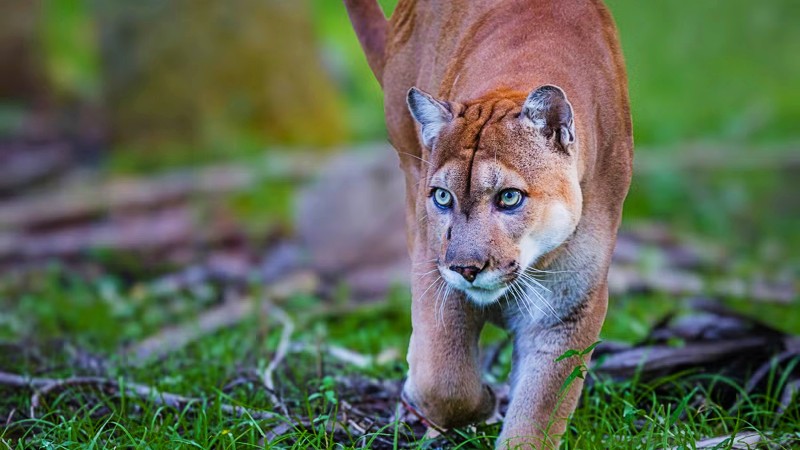Published in Journal of Wildlife Diseases | Estimated reading time: 6 minutes
With only 120-230 adult Florida panthers remaining in the wild, any potential threat to their survival raises serious conservation concerns. However, a new genetic study led by UCF researchers suggests these rare cats are not especially vulnerable to chronic wasting disease (CWD), even when consuming infected deer.
The research comes at a critical time, following the first detection of CWD in Florida’s white-tailed deer population in 2023. The disease, caused by misfolded proteins called prions, has been spreading through North American deer and elk populations, raising concerns about its potential impact on predator species.
“We sequenced the DNA of this gene in a bunch of Florida panthers, and we were able to show that Florida panthers are not any more or less susceptible than other populations of pumas in North America,” says Bob Fitak, UCF assistant professor of biology and study co-author. “This is a really good thing. We know in the rest of the country pumas can eat infected deer and not get sick.”
The study revealed an interesting genetic discovery. “Our research uncovered a new Central American prion allele that was likely introduced into the Florida panther population prior to the famous genetic rescue in 1995,” explains lead author Elizabeth Sharkey, who conducted the research as an undergraduate. “Luckily for the Florida panthers, the new allele does not appear to impact susceptibility to prion disease.”
The findings provide reassurance about a successful conservation program that began in the 1990s, when Texas pumas were introduced to boost the dwindling Florida panther population. This “genetic rescue” helped increase the population from just 20-30 individuals to today’s improved numbers.
Glossary
- Prion
- A type of misfolded protein that can cause fatal brain diseases in animals and humans. Unlike viruses or bacteria, prions spread by causing normal proteins to misfold.
- Chronic Wasting Disease (CWD)
- A fatal brain disorder affecting deer, elk, and related species, caused by prions. It leads to cognitive decline and death.
- Genetic Rescue
- A conservation strategy where animals from outside populations are introduced to boost genetic diversity in an endangered population.
- Allele
- A variant form of a gene. Different alleles can affect an organism’s traits or disease susceptibility.
Test Your Knowledge
What was the main finding of the UCF study regarding Florida panthers?
Answer: They are not particularly susceptible to chronic wasting disease from eating infected deer.
How many adult Florida panthers currently exist in the wild?
Answer: Approximately 120-230 adult panthers.
When was chronic wasting disease first detected in Florida’s deer population?
Answer: June 30, 2023
What conservation strategy helped increase the Florida panther population in the 1990s?
Answer: Genetic rescue through the introduction of Texas pumas to increase genetic diversity.
Enjoy this story? Subscribe to our newsletter at scienceblog.substack.com
If our reporting has informed or inspired you, please consider making a donation. Every contribution, no matter the size, empowers us to continue delivering accurate, engaging, and trustworthy science and medical news. Independent journalism requires time, effort, and resources—your support ensures we can keep uncovering the stories that matter most to you.
Join us in making knowledge accessible and impactful. Thank you for standing with us!

